The word “Bro” is one of the most popular ways to express closeness and brotherly love. It’s casual, cool, and instantly friendly. But sometimes, you might want a different word that feels fresh, personal, or fits better in certain situations. Whether you’re texting a friend, greeting someone warmly, or showing appreciation, these other ways to say “Bro” will help you sound thoughtful and natural.
What Does “Bro” Mean?
“Bro” means more than just “brother.” It’s a word that expresses loyalty, trust, comfort, and deep friendship. When you call someone “Bro,” you’re saying, “You matter to me, and I’ve got your back.” It’s an informal way to connect with someone who feels like family, even if they’re not related by blood.
Is It Professional or Polite to Say “Bro”?
In casual settings, “Bro” feels warm, relaxed, and friendly. However, in professional or formal situations, it can sound too informal. It’s best used with close friends, peers, or younger people who share the same tone. In workplaces or with new people, opt for softer alternatives like “friend,” “mate,” or “colleague.”
Synonyms for “Bro”
- Buddy
- Pal
- Dude
- Mate
- Homie
- Brotha
- Champ
- Broseph
- Brother
- Fam
- Bruh
- G
- Amigo
- Partner
- My Guy
- Chief
- Brodie
- Dawg
- Boi
- Bestie
1. Buddy
Meaning: “Buddy” is a classic word for a close friend. It feels easygoing and shows warmth and comfort, often used among people who share mutual respect and kindness.
Scenario: Use “Buddy” when you’re talking to a friend you care about or thanking someone for a small favor.
Examples:
- “Hey buddy, how have you been?”
- “You’re my best buddy, no matter what.”
- “Thanks for helping me move, buddy.”
- “I can always count on you, buddy.”
- “Let’s grab lunch soon, buddy.”
Tone: Friendly, warm, and sincere.
Explanation: “Buddy” makes your words sound heartfelt and genuine, perfect for moments of connection or gratitude without sounding too formal or distant.
2. Pal
Meaning: “Pal” means friend or companion, often used to show closeness with a cheerful touch.
Scenario: Perfect when you want to greet a friend or end a message with a friendly tone.
Examples:
- “Hey pal, long time no see!”
- “Take care, pal.”
- “You’ve been my closest pal since school.”
- “Don’t worry, pal, we’ll fix it.”
- “Good job, pal, that was impressive.”
Tone: Warm, simple, and positive.
Explanation: “Pal” adds a friendly energy to conversations, making it great for both casual texts and kind face-to-face chats.
3. Dude
Meaning: “Dude” means friend or guy — a cool and casual way to show friendliness or surprise.
Scenario: Use “Dude” when you’re speaking to someone close in age or personality, especially in relaxed settings.
Examples:
- “Hey dude, what’s up?”
- “Dude, that was an amazing game!”
- “Relax, dude, it’s all good.”
- “You’re a legend, dude.”
- “Come on, dude, let’s go!”
Tone: Casual, playful, and energetic.
Explanation: “Dude” is perfect for informal conversations — it builds a fun and friendly atmosphere that shows comfort and closeness.
4. Mate
Meaning: “Mate” is commonly used in British and Australian English to mean friend or companion.
Scenario: It’s great for greeting friends warmly or showing support in everyday conversation.
Examples:
- “Hey mate, how’s it going?”
- “No worries, mate, I’ll handle it.”
- “Thanks for your help, mate.”
- “You’ve been a great mate over the years.”
- “Catch you later, mate.”
Tone: Friendly, easygoing, and kind.
Explanation: “Mate” feels natural and genuine, adding friendliness without sounding forced. It works in both personal and casual professional situations.
5. Homie
Meaning: “Homie” is a slang term for a close friend from your neighborhood or inner circle.
Scenario: Use it when talking to someone you’ve grown up with or someone who feels like family.
Examples:
- “You’re my homie for life.”
- “What’s up, homie?”
- “We’ve been homies since school.”
- “Miss those old days, homie.”
- “You’ve always been real, homie.”
Tone: Loyal, informal, and affectionate.
Explanation: “Homie” carries a sense of deep trust and shared history, making it ideal for close, long-term friendships.
6. Brotha
Meaning: A casual and soulful variation of “Brother,” often used to show strong emotional or cultural connection.
Scenario: Use it with someone you respect or share a meaningful bond with.
Examples:
- “You’re my brotha, always have been.”
- “Stay strong, brotha, you’ve got this.”
- “Love you, brotha, keep shining.”
- “We rise together, brotha.”
- “That’s real talk, brotha.”
Tone: Warm, heartfelt, and respectful.
Explanation: “Brotha” adds soul and emotion to your message, expressing unity, care, and shared experience.
7. Champ
Meaning: “Champ” is short for “champion,” often used as a nickname to show admiration or encouragement.
Scenario: Perfect for cheering someone up or acknowledging their success.
Examples:
- “You did great, champ!”
- “Keep your head up, champ.”
- “Proud of you, champ.”
- “Way to go, champ!”
- “You’re doing amazing, champ.”
Tone: Supportive, uplifting, and positive.
Explanation: Calling someone “Champ” adds motivation and warmth, showing that you truly believe in their strength and effort.
8. Broseph
Meaning: “Broseph” is a fun and playful spin on “Bro,” often used between friends who share a joking, lighthearted connection.
Scenario: Use “Broseph” when you want to make your friend laugh or keep the conversation cheerful and friendly.
Examples:
- “Yo Broseph, how’s life treating you?”
- “Thanks for the help, Broseph!”
- “You’re a legend, Broseph.”
- “Broseph, that was hilarious!”
- “Good to see you again, Broseph.”
Tone: Playful, humorous, and lighthearted.
Explanation: “Broseph” adds a touch of humor and charm, making casual chats feel fun and full of good vibes.
9. Brother
Meaning: The full form of “Bro,” this word expresses deep respect, loyalty, and genuine care.
Scenario: Use “Brother” when you want to sound sincere, emotional, or when showing heartfelt appreciation.
Examples:
- “Thank you, Brother, that means a lot.”
- “You’ve always been like a brother to me.”
- “Stay strong, Brother, you’ve got this.”
- “Appreciate your help, Brother.”
- “Always got your back, Brother.”
Tone: Emotional, sincere, and respectful.
Explanation: Using “Brother” makes your message feel genuine and personal — it’s a meaningful way to express deep friendship and support.
10. Fam
Meaning: “Fam” is short for “family,” used to describe close friends who feel like family members.
Scenario: Use it in relaxed situations with your inner circle or people you deeply trust.
Examples:
- “You’re my fam forever.”
- “Love you, fam, always got your back.”
- “Let’s chill this weekend, fam.”
- “Proud of you, fam!”
- “No worries, fam, we’re in this together.”
Tone: Warm, loyal, and affectionate.
Explanation: “Fam” helps you express closeness and unity — perfect for people who are more like family than friends.
11. Bruh
Meaning: A casual version of “Bro,” used widely in memes, social media, and informal chats.
Scenario: Use “Bruh” in funny, casual, or relatable moments to express surprise, disbelief, or amusement.
Examples:
- “Bruh, are you serious?”
- “That’s wild, bruh.”
- “Come on, bruh, you can’t be serious.”
- “Thanks, bruh, you saved the day.”
- “Bruh, that was epic!”
Tone: Playful, expressive, and casual.
Explanation: “Bruh” fits modern internet culture — it adds personality and humor, making your tone sound relaxed and authentic.
12. G
Meaning: “G” stands for “Gangsta,” but today it’s used casually to mean a respected or close friend.
Scenario: Use it when greeting someone confidently or showing mutual respect among close friends.
Examples:
- “What’s good, G?”
- “Appreciate it, G.”
- “Stay real, G.”
- “You always keep it honest, G.”
- “Respect, G, that was dope.”
Tone: Cool, confident, and respectful.
Explanation: “G” gives a vibe of loyalty and respect, perfect for friends who share a strong, confident connection.
13. Amigo
Meaning: “Amigo” means “friend” in Spanish and carries a warm, friendly, and global feel.
Scenario: Use it to greet someone warmly or show appreciation with a positive, multicultural touch.
Examples:
- “Hola, amigo! How are you?”
- “Thanks for your help, amigo.”
- “Good to see you, amigo.”
- “Take care, amigo.”
- “You’re a great amigo, always.”
Tone: Friendly, warm, and kind.
Explanation: “Amigo” brings a personal and international warmth that makes conversations feel open and kind-hearted.
14. Partner
Meaning: “Partner” shows trust, teamwork, and equality, often used in friendships or collaborations.
Scenario: Use it to acknowledge someone who supports or works with you in any effort.
Examples:
- “You’re my favorite partner in crime.”
- “Thanks for being such a great partner.”
- “We’ve come a long way, partner.”
- “Let’s do this, partner.”
- “Good work today, partner.”
Tone: Respectful, friendly, and strong.
Explanation: “Partner” adds a sense of team spirit and shared purpose — great for close friendships or professional bonds.
15. My Guy
Meaning: A friendly and casual term meaning “my friend” or “my person”, showing familiarity and respect.
Scenario: Use it when greeting a friend or expressing appreciation casually.
Examples:
- “Hey, my guy, what’s up?”
- “You always come through, my guy.”
- “Proud of you, my guy.”
- “Appreciate you, my guy.”
- “Let’s hang soon, my guy.”
Tone: Loyal, relaxed, and positive.
Explanation: “My Guy” makes your words sound genuine and confident — it’s a great mix of respect and closeness.
16. Chief
Meaning: A friendly nickname that shows respect, leadership, or admiration.
Scenario: Use it to greet someone confidently or when showing appreciation.
Examples:
- “Morning, chief, how’s everything?”
- “You did great work today, chief.”
- “Thanks for the help, chief.”
- “You’re leading the way, chief.”
- “Good call, chief.”
Tone: Respectful, confident, and casual.
Explanation: “Chief” sounds both friendly and empowering — ideal for showing respect while keeping the tone easygoing.
17. Brodie
Meaning: “Brodie” is another slang version of “Bro,” often used with a cool, affectionate tone.
Scenario: Use it in casual conversations with close friends or to express appreciation.
Examples:
- “Appreciate you, Brodie.”
- “What’s up, Brodie?”
- “Love you, Brodie, always real.”
- “That’s fire, Brodie.”
- “Let’s link up later, Brodie.”
Tone: Chill, affectionate, and urban.
Explanation: “Brodie” keeps the modern slang vibe while expressing respect and friendship naturally.
18. Dawg
Meaning: “Dawg” is a street-style term for friend, ally, or homie, popular in hip-hop and urban culture.
Scenario: Use it when you want to sound confident, close, or casual with your crew.
Examples:
- “You’re my dawg forever.”
- “What’s good, dawg?”
- “I got you, dawg.”
- “We’ve been dawgs since day one.”
- “Respect, dawg, you earned it.”
Tone: Cool, friendly, and loyal.
Explanation: “Dawg” adds strength and authenticity to your tone — it’s perfect for showing deep loyalty among close friends.
19. Boi
Meaning: A modern slang version of “boy,” often used jokingly or affectionately among close friends.
Scenario: Use it when teasing, joking, or chatting casually with someone you know well.
Examples:
- “Boi, you’re too funny.”
- “Calm down, boi, it’s not that serious.”
- “You got this, boi.”
- “Boi, that was wild!”
- “Good job, boi.”
Tone: Playful, casual, and expressive.
Explanation: “Boi” adds humor and light energy to your tone, keeping conversations fun and comfortable.
20. Bestie
Meaning: “Bestie” means best friend — it’s affectionate and gender-neutral, full of care and love.
Scenario: Use it with your closest friend when showing appreciation or emotional connection.
Examples:
- “Love you, bestie.”
- “You’re my forever bestie.”
- “Thanks for being there, bestie.”
- “Couldn’t do this without you, bestie.”
- “Miss you, bestie!”
Tone: Affectionate, heartfelt, and warm.
Explanation: “Bestie” expresses deep emotional connection and appreciation — it’s perfect for showing love and friendship genuinely.
Conclusion
Finding other ways to say “Bro” helps you express care and friendship in more personal, meaningful ways. Whether you prefer Buddy, Homie, Champ, or Fam, each word carries a slightly different energy — from playful to respectful to deeply emotional. Choosing the right one can make your words feel more authentic and heartfelt, strengthening your connection with others.
FAQs
1. Can I use “Bro” for a female friend?
Yes, many people use “Bro” for close female friends casually — it depends on your relationship and tone.
2. What’s the difference between “Bro” and “Dude”?
“Bro” sounds more brotherly and affectionate, while “Dude” is more casual and fun.
3. Is “Bro” okay to use in professional emails?
No, it’s better to use “colleague” or “team member” in formal or work-related settings.
4. What’s a polite alternative to “Bro”?
Try “Buddy,” “Mate,” or “Friend” — they sound friendly without being too informal.
5. What’s the most affectionate alternative to “Bro”?
“Bestie,” “Fam,” and “Brotha” are great choices for showing warmth and care.
Amelia Bennett is a language writer at GrammerWay who focuses on English grammar, writing clarity, and common language mistakes. She creates simple, practical guides to help readers write confidently and correctly.

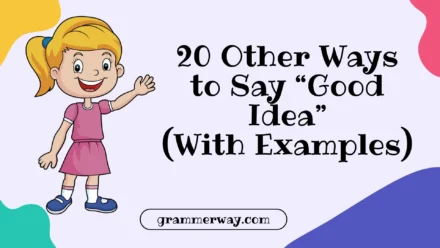
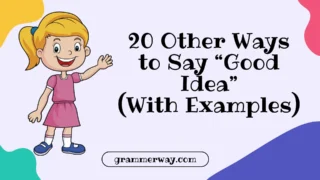
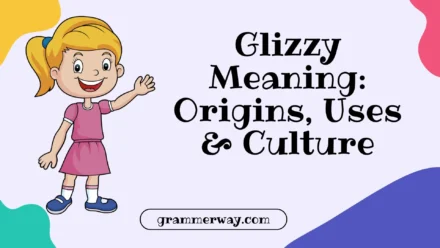
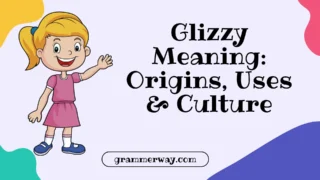
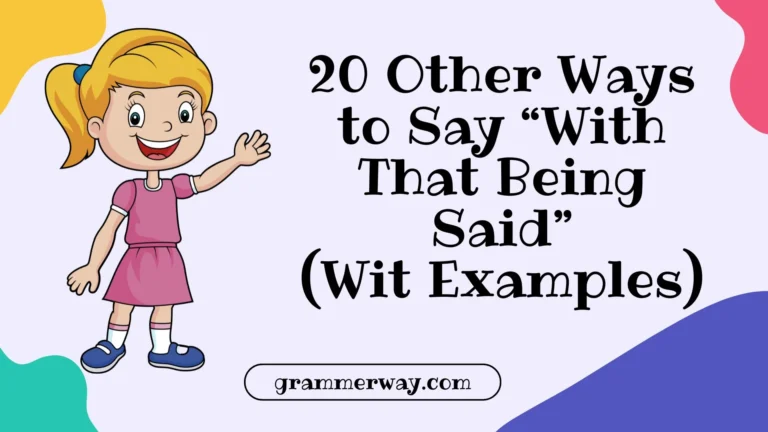
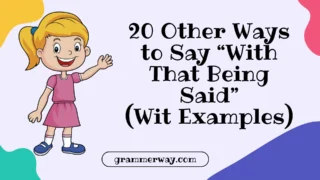
Leave a Comment